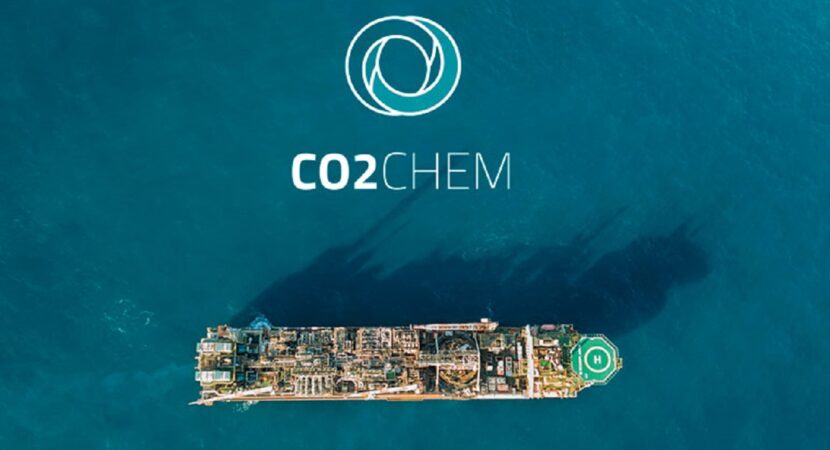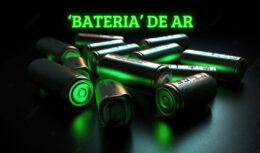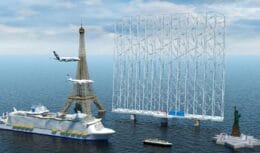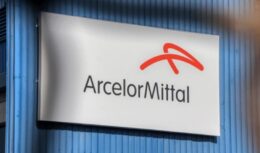
Repsol Sinopec Brasil announced a new partnership with PUCRS for the development of a negative emission technology project that should be ready by 2025.
A Repsol Sinopec Brazil announced more than BRL 60 million in investments to develop negative emission technology (NET) in partnership with PUCRS. This is the first project to be installed in Brazil, with geological, climatic and temperature conditions different from the technologies already created for the northern hemisphere. The project was named Direct Air Capture System Integration (DAC SI) and will be the first atmospheric carbon capture and geological storage project to be installed in South America.
Negative emission technology project promises to be ready in 2025
DAC SI proposes to use the DACCS technology, which consists of extracting CO₂ from the air and storing it geologically. It is worth remembering that the project does not aim to reduce or minimize emissions, but to remove the CO₂ already emitted into the atmosphere, eliminating the emissions already made. For the storage of negative emission technology in partnership with PUCRS, the objective is to use basaltic rocks to fix CO₂ through the mineralization process.
The estimate is that the installation and operation of a DAC unit will be completed in 2025. The negative emission technology project by Repsol Sinopec Brasil and PUCRS is part of a program by Repsol, which has been developing, over the last few years, a global platform for experimental initiatives focused on supporting Net Zero commitments.
According to Repsol Sinopec Brasil's R&D manager, José Javier Salinero, this is the most ambitious project launched by the company, both in terms of economics and expected future impact, as part of the energy transition process.
PUCRS has experience in projects in the CCS sector
The first phase of the negative emission technology project is linked to the purchase of the necessary equipment and the assessment of the mineralization potential of carbon dioxide in basaltic rock in the Paraná Basin, adapting the technology to the Brazilian habitat.
The project also aims to evaluate the use of renewable energy, such as solar, for the energy supply of the DAC unit, in order to avoid new emissions during the removal process. The Institute of Petroleum and Natural Resources of PUCRS was chosen for the project because it has a long history of carrying out RD&I projects in the Carbon capture and storage (CSS), professionals with competence in the subject and a unique infrastructure for several stages of tests to be carried out, in addition to having an open and flexible innovation model that fits the structure that a project of this size demands.
Repsol Sinopec Brasil focusing on sustainable solutions
According to the director of the Institute of Petroleum and Natural Resources at PUCRS, Felipe Della Vecchia, partnering with Repsol Sinopec Brasil in a large-scale project like this and of great social importance is a source of great pride for the entire IPR-PUCRS team.
Creating technologies that act to reduce climate change is a huge challenge for many companies, however, more than a challenge, it is an immediate need. This project will join the company's R&D portfolio, which is increasingly focused on finding solutions to carbon mitigation challenges.
Repsol has been present in Brazil since 1997, being a pioneer in opening up the E&P market and in exploring the Brazilian pre-salt. It is currently the fourth largest oil and gas producer in Brazil, with an average daily production of around 80 barrels a day.












Air Force F-16 fighters…
True friend, what they shot down were…
Air Force F-16 fighters…
I would like to know what planet you live on…
Air Force F-16 fighters…
Everything is fine, 100-year secrecy,…
Air Force F-16 fighters…
Well... It's flying scrap... Typical...
Air Force F-16 fighters…
Which genocide are you talking about? Than…
I work in construction!
I want to write myself
I have a degree in the area of Property security,…
I am an occupational safety technician and…
+5532984899306
Army becomes a national shame, speak…
A lot of horrible cable on the horizon?…
The ideal thing to do is Rio X São Paulo,…